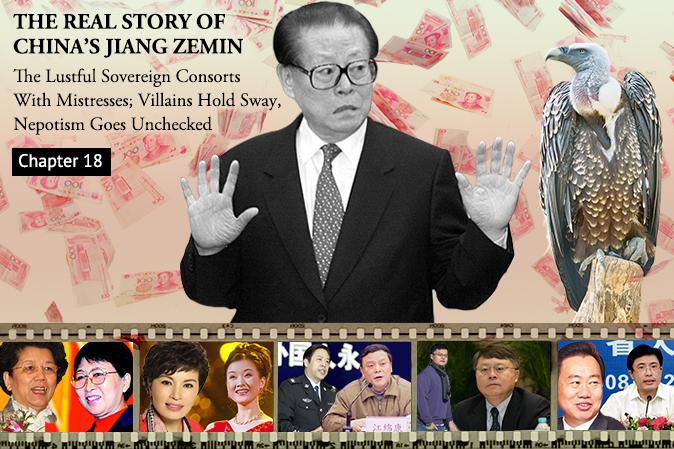Jiang Zemin’s days are numbered. It is only a question of when, not if, the former head of the Chinese Communist Party will be arrested. Jiang officially ran the Chinese regime for more than a decade, and for another decade he was the puppet master behind the scenes who often controlled events. During those decades Jiang did incalculable damage to China. At this moment when Jiang’s era is about to end, Epoch Times here republishes in serial form “Anything for Power: The Real Story of Jiang Zemin,” first published in English in 2011. The reader can come to understand better the career of this pivotal figure in today’s China.
Chapter 18: The Lustful Sovereign Consorts With Mistresses; Villains Hold Sway, Nepotism Goes Unchecked
The shady dealings of Jiang Zemin and his many mistresses have long been the subject of rumors in both official circles and among the general public. Then in 2002, much to Jiang’s indignation, an astonishing book, titled “The First Lady Song Zuying,” appeared in Shaodong City, Hunan Province. While the book’s publication resulted in the jailing of dozens, the arrests were unable to prevent the details of Jiang’s sex life from coming to light.1. Ms. Song Zuying





